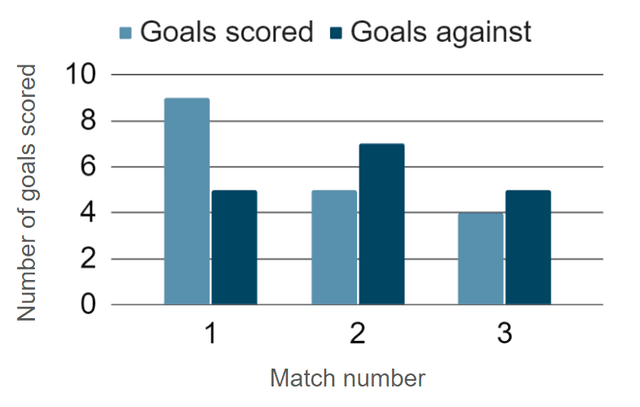Explain how to use the mean to make comparisons between two sets of data
I can explain how to use the mean to make comparisons between two sets of information
Explain how to use the mean to make comparisons between two sets of data
I can explain how to use the mean to make comparisons between two sets of information
These resources will be removed by end of Summer Term 2025.
Lesson details
Key learning points
- The mean value can be used to compare two different sets of data.
- The mean is a single value which can represent a set of data.
Keywords
Mean average - The mean average is a single number expressing the typical value in a set of data. It is calculated by finding the total of the set of data and dividing by how many values there are.
Set of data - A set of data is collection of facts, such as numbers, words, measurements, observations or even just descriptions of things.
Common misconception
The mean average is used to compare different sets of data. Much of the data we see in the media uses mean average values so it is important to know how these figures are calculated.
Discuss what the mean average of a set of data represents and perhaps look at current news stories or local papers for examples of the mean average used in the media.
To help you plan your year 6 maths lesson on: Explain how to use the mean to make comparisons between two sets of data, download all teaching resources for free and adapt to suit your pupils' needs...
To help you plan your year 6 maths lesson on: Explain how to use the mean to make comparisons between two sets of data, download all teaching resources for free and adapt to suit your pupils' needs.
The starter quiz will activate and check your pupils' prior knowledge, with versions available both with and without answers in PDF format.
We use learning cycles to break down learning into key concepts or ideas linked to the learning outcome. Each learning cycle features explanations with checks for understanding and practice tasks with feedback. All of this is found in our slide decks, ready for you to download and edit. The practice tasks are also available as printable worksheets and some lessons have additional materials with extra material you might need for teaching the lesson.
The assessment exit quiz will test your pupils' understanding of the key learning points.
Our video is a tool for planning, showing how other teachers might teach the lesson, offering helpful tips, modelled explanations and inspiration for your own delivery in the classroom. Plus, you can set it as homework or revision for pupils and keep their learning on track by sharing an online pupil version of this lesson.
Explore more key stage 2 maths lessons from the Mean average unit, dive into the full secondary maths curriculum, or learn more about lesson planning.

Licence
Starter quiz
6 Questions


Exit quiz
6 Questions






